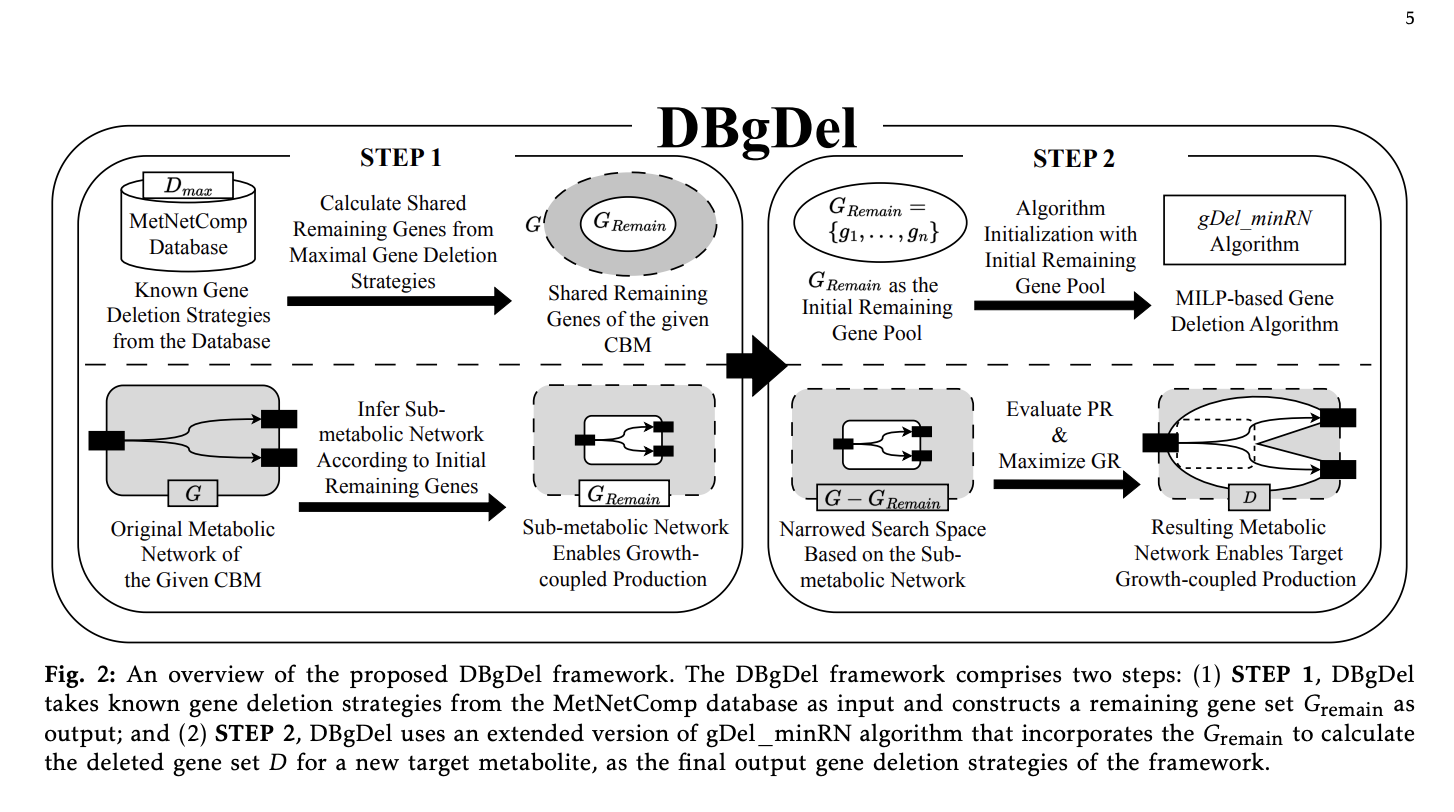
Understanding Gene Deletion Strategies for Metabolic Engineering
Identifying effective gene deletion strategies for growth-coupled production in metabolic models is challenging due to high computational demands. Growth-coupled production connects cell growth with the production of target metabolites, which is crucial for metabolic engineering. However, large-scale models require extensive calculations, making these methods less efficient and scalable for industrial applications.
Current Methods and Their Limitations
Common approaches like elementary flux vector-based methods, gDel minRN, GDLS, and optGene are useful but often costly in terms of computation. Many of these methods do not share information between different targets, leading to repeated calculations that increase costs and reduce scalability. For instance, GDLS has a low success rate, while optGene requires too much computation time for large-scale applications.
A Practical Solution: DBgDel
To improve efficiency, researchers from Kyoto University developed DBgDel, a database-driven framework that utilizes the MetNetComp database. This framework operates in two main steps:
- It retrieves “remaining genes” from existing deletion strategies in the database to create a focused initial gene pool.
- It employs an enhanced version of the gDel minRN algorithm to compute gene deletion strategies efficiently.
This approach reduces redundant calculations and speeds up the process, making it highly scalable and practical for genome-scale metabolic engineering.
Performance and Results
The research team tested DBgDel on three metabolic models of varying complexity, utilizing over 85,000 deletion strategies from the MetNetComp database. The results showed:
- DBgDel achieved an average of 6.1 times faster performance compared to traditional methods.
- It successfully identified deletion strategies for 507 out of 991 target metabolites in large-scale models like iML1515.
This database-driven approach enhances scalability and precision, proving effective for genome-scale metabolic engineering.
Transforming Metabolic Engineering with DBgDel
DBgDel represents a significant advancement in identifying gene deletion strategies, addressing challenges in computational efficiency and scalability. By leveraging database knowledge, it provides faster and more accurate results, paving the way for practical applications in industrial biotechnology.
Stay Connected
For more insights, check out the research paper and follow us on Twitter, Telegram, and LinkedIn. If you appreciate our work, subscribe to our newsletter and join our thriving ML community on Reddit.
Explore AI Solutions for Your Business
To enhance your company with AI and stay competitive, consider DBgDel for your metabolic engineering needs. Learn how AI can transform your operations:
- Identify Automation Opportunities: Find key areas for AI integration.
- Define KPIs: Measure the impact of your AI initiatives.
- Select an AI Solution: Choose tools that fit your requirements.
- Implement Gradually: Start small, gather data, and expand wisely.
For AI management advice, contact us at hello@itinai.com. Stay updated on AI insights through our Telegram channel or Twitter.
Discover how AI can enhance your sales processes and customer engagement at itinai.com.



























